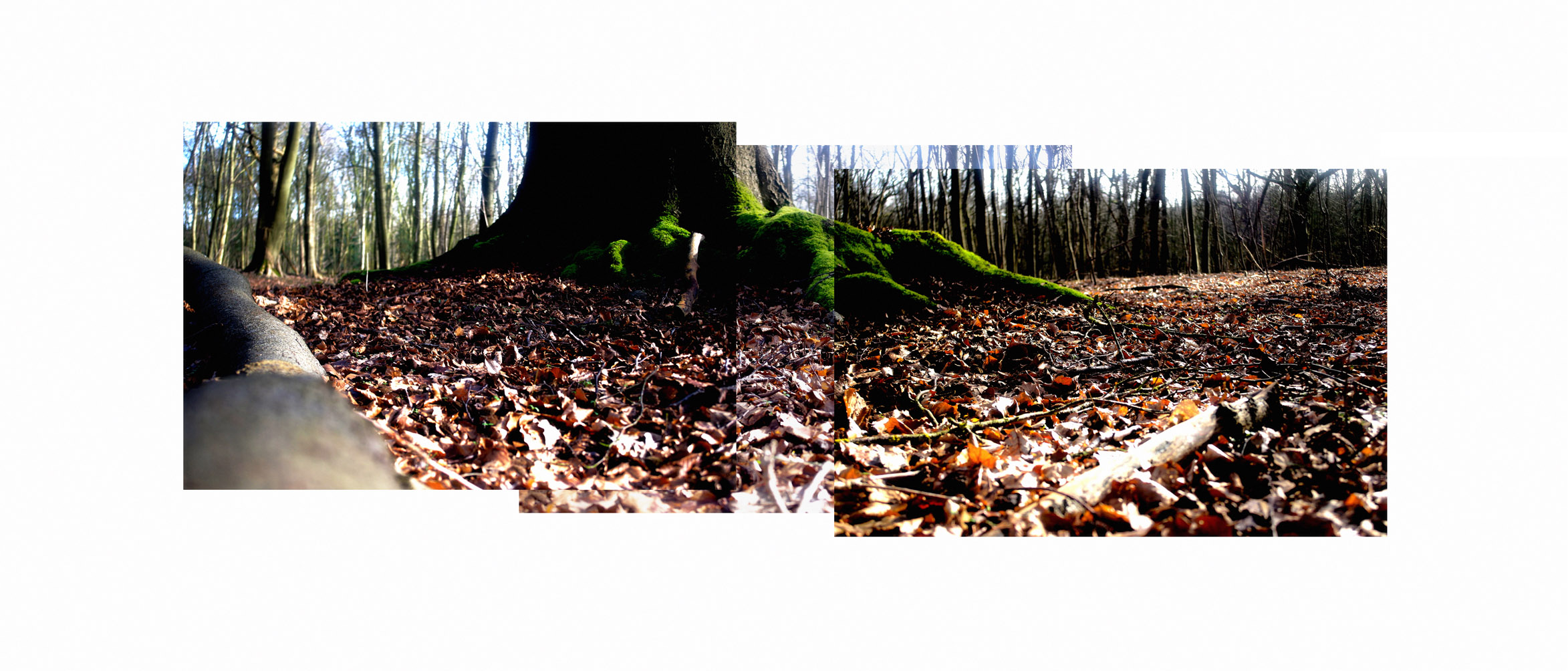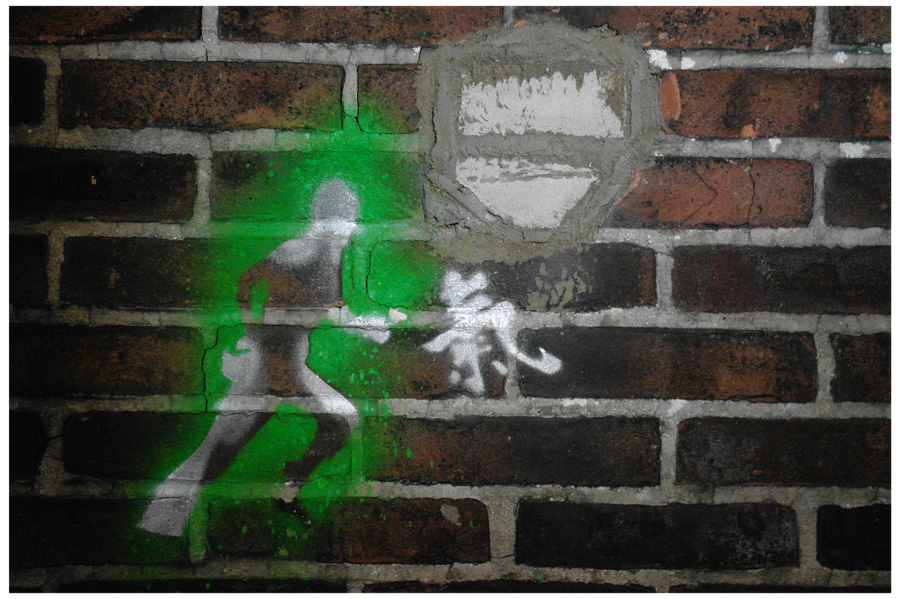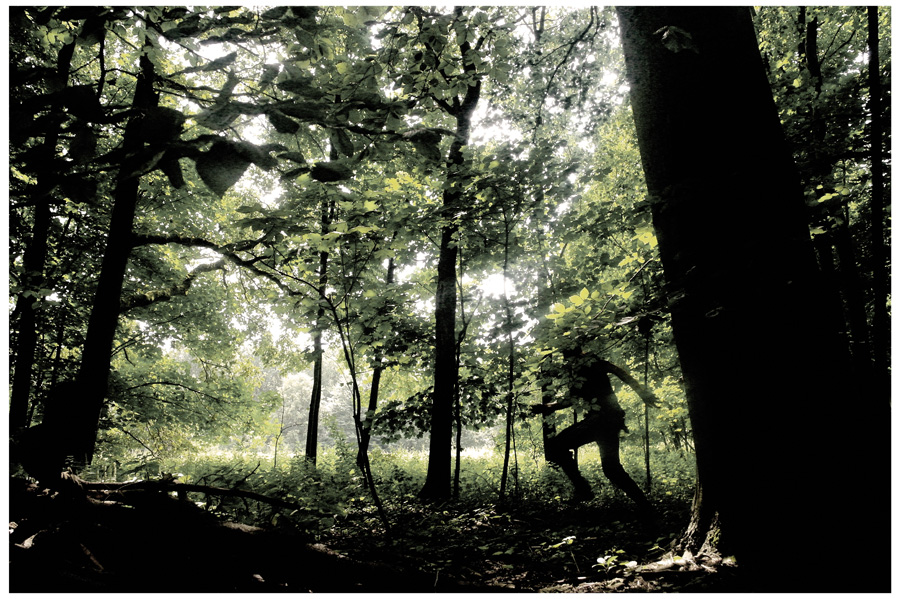SAR_10_along_the_way
- Details
- Hits: 7028

Above: FP 30K SAR BL training. Identical to running… " [ a ] movie flows trough real time, like a river carrying you toward your destination. If you ask a question or think about something other than the movie, you're out of the river and up on the bank -- out of the flow. This is seldom good." -- Howard Suber ' The Power of Film ' (page 168).
Structure: How reality affects story:
"When I examined what the structure [ of the film 'Au Revoir les Enfants' ] should be, I thought it was important, little by little, to see the war breaking in. The central story is the arrival of this new boy and how he and Julien become friends; there's hostility at first and then step by step we see the birth of a friendship between two children who are equally curious about certain things, probably a little smarter than the rest of the students, and how they find their affinities." Louis Malle in 'Malle on Malle', edited by Philip French (Chapter 5, 'Coming Home', page 170 - 172)
Story: attempted quest for unity by the character(s):
" [...] "I don't want to bother you much with what happened to me personally," he began, showing in this remark the weakness of many tellers of tales who seem so often unaware of what their audience would best like to hear; "yet to understand the effect of it on me you ought to know how I got out there, what I saw, how I went up that river to the place where I first met the poor chap. It was the farthest point of navigation and the culminating point of my experience. It seemed somehow to throw a kind of light on everything about me -- and into my thoughts. It was sombre enough, too -- and pitiful -- not extraordinary in any way -- not very clear either. No, not very clear. And it seemed to throw a kind of light." Joseph Conrad 'Heart of Darkness', first published in 1899 (page 11)
As adapted in the 'Apocalypse Now' screenplay (John Milius and Francis Ford Coppola, narration written by Michael Herr):
EXT. MILITARY COMPOUND - DAY
A darkly painted Huey lands in a guarded military compound
somewhere in Nah Trang. The two enlisted men jump out of
the helicopter, leading Willard, who seems in much better
shape. As he gets out he sees a platoon of new men drilling
in the hot hazy sun. They are clean and pale.
MEN (Chanting)
I wanna go to Vietnam.
I wanna kill a Vietcong-
WILLARD (V.O.)
I was going to the worst place in
the world, and I didn't even know
it yet. Weeks away and hundreds
of miles up river that snaked
through the war like a circuit
cable...plugged straight into Kurtz.
He follows the escort across the fields as the platoon
drills.
WILLARD (V.O.)
It was no accident that I got to
be the caretaker of Colonel Walter
E. Kurtz's memory, any more that
being back in Saigon was an
accident. There was no way to
tell his story without telling my
own. And if his story is really a
confession, then so is mine.
They approach a civilian-type luxury trailer. It is
surrounded by concertina wire, and its windows have grenade
protection, but it still seems out of place in this austere
military base.
CLOSER ON WILLARD
He stands before the door for a moment, as the M.P.s
guarding the trailer check his papers.
Next level
- Details
- Hits: 6948

Kennemer Dunes, today. Focus on the task [ meditation ]
Min/max temperature: 4°C/7°C; humidity: 99%; precipitation: 1 mm; sea level pressure: 997 hPa; wind West 15.9 km/h; visibility: 10.0 kilometres; Clouds: Few 335 m., Scattered Clouds 762 m., Mostly Cloudy 1188 m
"Perhaps the most powerful revolutions are the ones that deny they ever happened. They install a new approach and erase an earlier practice so successfully that we look at the world trough the structures they leave behind. The reinvention of money in early modern England was such an event. […] At first glance, money seems an odd place for a revolution. According to much of modern thought, money is an instrument, an empty signifier, a function. In economic terminology, it is a unit of account, a mode of payment, and a medium of exchange, more interesting for what it does than for what it is. [...] That, in fact, is part of the revolution's vanishing act. […] Making an entity that can answer demands at once so intimate and so impersonal, so material and so artificial -- making money -- is a governance project, one of the most penetrating that societies undertake." […] "I heard a wise man compare the hammers of the Mint in the state unto the pulses of a natural body, […] For as these beat strongly, it argues health, but if faintly, weakness in the body is natural." From the medieval trough the early modern period, metaphors casting money as blood or another bodily fluid were common in Europe (it was early days, after all, in the science of the body and notions varied about exactly how blood, humors, or other flows worked) " [ Money ]… is to the body politic what blood is to the human body," the French Estates General noted in a 1484 communication to King Charles VIII […] At the end of the century, a critic of the bank of England used the traditional understanding to sound an alarm. "A wise state […] should constantly discourage a monopoly of cash and credit, they being to trade what the blood and spirits are to the body, which then thrives best, when every part receives its proportion, and there is a free unrestrained circulation throughout the whole…" The money as blood metaphor, "virtually a stock-in-trade for five hundred years," lingered trough the 18th century. " [It ] has seldom been used since." A new metaphor has replaced the old one. Money, wrote David Hume in 1752, would remain proportionate to the art and industry of a nation just as "water", wherever it communicates, remains always at a level. […] "Ask naturalists the reason; they tell you, were it to be raised in any place, the superior gravity of that part not being balanced, must depress it, till it meets a counterpoise." [ Capitalism ] constructed a money tuned by individual exchange for profit, institutionalising that motive as the heart of productivity. [ It ] identified that money as neutral, locating all value and judgements about value in the "real economy" it facilitated. […] There is no romantic baseline to the coming of capitalism. [ Looking ] at the history of money does suggest that the market is a matter of constitutional design, a political and legal creation. It is a governance project all the way down, starting with its money. That enterprise, rather than the space outside it, makes the economy real."
Christine Desan in 'Making Money', page 1, 422, 423, 424, 434, first published in 2014 by Oxford University Press, United KIngdom
"I hear stories about directors who scream at actors, or they trick them somehow to get a performance. And there are some people who try to run the whole business on fear. [ This ] is such a joke -- it's pathetic and stupid at the same time. When people are in fear, they don't want to go to work. So many people today have that feeling. Then the fear starts turning into hate, and they begin to hate going to work. Then the hate can turn into anger and people become angry at their boss and their work. If I ran my set with fear, I would get 1 percent, not 100 percent, of what I get. And there would be no fun in going down the road together. And it should be fun, like puppy dogs with our tails wagging. It's supposed to be great living; it's supposed to be fantastic. Instead of instilling fear, if a company offered a way for everyone in the business to dive within -- to start expanding energy and intelligence -- people would work overtime for free. They would be far more creative. And the company would just leap forward. This is the way it can be. It's not the way it is, but it could be that way so easily."
David Lynch in 'Catching the Big Fish, meditation, consciousness, and creativity', page 73, 74, first published in 2006 by Bobkind, Inc., USA
"Imagine being completely free of internal restraints and doing whatever you please. Imagine a mental state that entails no conscience. Imagine having no feelings of remorse or guilt, whatever unpleasant things you may be doing. Imagine caring only for number one, and having absolutely no concern for the well-being of others. Imagine responsibility being an empty term, having no conceptual meaning. Imagine giving no second thought to the shameful, harmful, or immoral actions you have taken. Wouldn't such an emotional deficit be a great blessing? Wouldn't life be much simpler and more pleasurable without inhibitions? A conscience is a nuisance; empathy a drag. Without the usual pangs of shame and guilt, you would be able to do anything. Nothing would hold you back. We tend to assume that a conscience is a universal human feature, which makes it hard (for most of us) to imagine that there are people with this kind of personality makeup. […] We don't recognise them. The presence or absence of conscience creates a deep divide between people. For the purpose of maintaining our own sanity, we had better accept that a small portion of the population has a psychological makeup and mindset very different from the rest of us. […] They assume a kind of stealth position within organisation and society […] Their lack of conscience means that the usual tools for societal control don't work and are irrelevant to them. […] These people can bring havoc to the lives of others and are often described as psychopaths. […] But only a small subset of psychopaths becomes the violent criminals so often fictionalised in films and novels. […] Not all psychopaths are destined for prison; some may even be in top executive positions. […] The power games that typify organisational life come naturally to them. […] They know how to blend in and conceal their difference in order to manipulate others more effectively. […] These people are unable to experience "normal" feelings of shame, guilt or remorse. And although their stealth behaviour makes them hard to recognise, there are plenty of them out there. According to Robert Hare, a major specialist in psychopathy, approximately one percent of the population falls within the psychopath category -- and a much larger number can be found in executive positions. Estimates vary, but approximately 3.9 percent of corporate professionals can be described as having psychopathic tendencies, a figure considerably higher than is found in the general population. [ Many ] people working in organisations have a fair chance of experiencing a pathological boss."
Manfred F. R. Kets de Vries in 'Mindful Leadership Coaching, Journeys into the interior', page 107, 108, 109, first published in 2014 by Palgrave Macmillan, USA
SAR_sarsential™_18_der_ortssinn
- Details
- Hits: 6823

Above: PGIA SAR BLMTT 13K. Sarsential 18: der Ortssinn, "[S]ich von jeder Gegend schnell eine richtige geometrische Vorstellung zu machen und als Folge davon sich in ihr jedesmal leicht zurechtzufinden. Offenbar ist dies ein Akt der Phantasie. Zwar geschieht das Auffassen dabei teils durch das körperliche Auge, teils durch den Verstand, der mit seinen aus Wissenschaft und Erfahrung geschöpften Einsichten das Fehlende ergänzt und aus den Bruchstücken des körperlichen Blicks ein Ganzes macht; aber daß dies Ganze nun lebhaft vor die Seele trete, ein Bild, eine innerlich gezeichnete Karte werde, daß dies Bild bleibend sei, die einzelnen Züge nicht immer wieder auseinanderfallen, das vermag nur die Geisteskraft zu bewirken, die wir Phantasie nennen." [Visualisation: being able to find one’s place exactly at any time]
"[T]he [runner] must commit the business he has in hand to a corresponding space which his eye cannot survey, which the keenest zeal cannot always explore, and with which, owing to the constant changes taking place, he can also seldom become properly acquainted. [H]e who by talent and practice overcomes it will have a great advantage on his side […]. This very peculiar difficulty must be overcome by a natural mental gift of a special kind which is known by the – too restricted – term of Orisinn sense of locality. It is the power of quickly forming a correct geometrical idea of any portion of country, and consequently of being able to find one’s place in it exactly at any time. This is plainly an act of the imagination. The perception no doubt is formed partly by means of the physical eye, partly by the mind, which fills up what is wanting with ideas derived from knowledge and experience, and out of the fragments visible to the physical eye forms a whole; but that this whole should present itself vividly to the reason, should become a picture, a mentally drawn map, that this picture should be fixed, that the details should never again separate themselves – all that can only be effected by the mental faculty which we call imagination. If some great poet or painter should feel hurt that we require from his goddess such an office; if he shrugs his shoulders at the notion that a sharp gamekeeper must necessarily excel in imagination, we readily grant that we only speak here of imagination in a limited sense, of its service in a really menial capacity. But, however slight this service, still it must be the work of that natural gift, for if that gift is wanting, it would be difficult to imagine things plainly in all the completeness of the visible. […]"
Carl von Clausewitz, 'On War', page 71, first published in Germany by Ferdinand Dümmler, Berlin, 1832
The sixth "C"
- Details
- Hits: 6869

Today, Santpoort-Noord. Cheating ["The sixth "C"]
“Apply the 80/20 principle.[...] Being deployed into the field is a big challenge to eating a perfect meal. Even in our busy lives when not “deployed” [...] shit happens. Even being home for the holidays is a minefield for Paleo-style fueling. [S]tick to Paleo when you can, striving for 80% of the [time]. Don’t sweat the remaining 20%. With the 80-20 principle, the 20%—MRE’s and Snicker’s bars included—is not going to overturn the Paleo fat-burning metabolic diesel engine you’ve worked hard to create."
Mark Divine on Sealfit blog: Fueling for high performance: modifications on the Paleo diet, published August 29, 2015 on the SealFit website
"Most professionals instinctively know the right way to film the subject -- but seem to be unable to explain just how they did it. […] Many cameraman -- particularly those shooting non-theatrical pictures -- become so involved in the technical aspects of movie making that they tend to forget that the primary purpose of a motion picture is to tell an interesting story! [...] The aims of this book are to make the reader aware of the many factors involved in telling a story with film, and to show how theatrical filming techniques can be successfully applied to non-theatrical pictures. […] It is important […] that the ambitious movie makers first learn the rules before breaking them. […] Experiment; be bold; shoot in an unorthodox fashion! But, first learn the correct way, don't simply do it a "new way" -- which, very likely, was new thirty years ago! -- because of a lack of knowledge of proper filming techniques. Learn to know your audience. Place yourself in the viewer's position. Be truly objective. […] Try […] use it [a new method or idea, or] discard it! […] The serious student should […] consider a sixth "C" -- cheating -- which can not be learned from this or any other book! […] Only experience will teach the cameraman and film editor when and how to cheat. The secret of effective cheating is in knowing how to make changes without the audience being aware of that. The only crime in cheating is in getting caught! […] The beginner may be either afraid to cheat, or he may cheat too much. […] This volume is not intended to be a means to and end -- but a beginning!"
Joseph V. Mascelli in the prologue to 'The Five C's of Cinematography; motion picture filming techniques', first published in 1965 by Silman-James Press, USA
SAR_sarsential™_toolbox_8/14
- Details
- Hits: 6727

Above: P [hoto finish] GIA¹ 30K SAR² BLMTT³. Sarsential 8: deep-breath.
" [D]eepening comfort is nature's signal that many families of messenger molecules (such as endorphins) are flowing trough [ the ] mind-body to facilitate healing and well-being." -- Ernest Lawrence Rossi on page 54 in 'The 20-Minute Break', first published in 1991 by Jeremy P. Tarcher, Inc., Los Angeles
¹ PGIA: Photo Generated Injury Analysis
² SAR: Strategic Alert Running
³ BLMTT: Best Level Mixed Terrain Training


